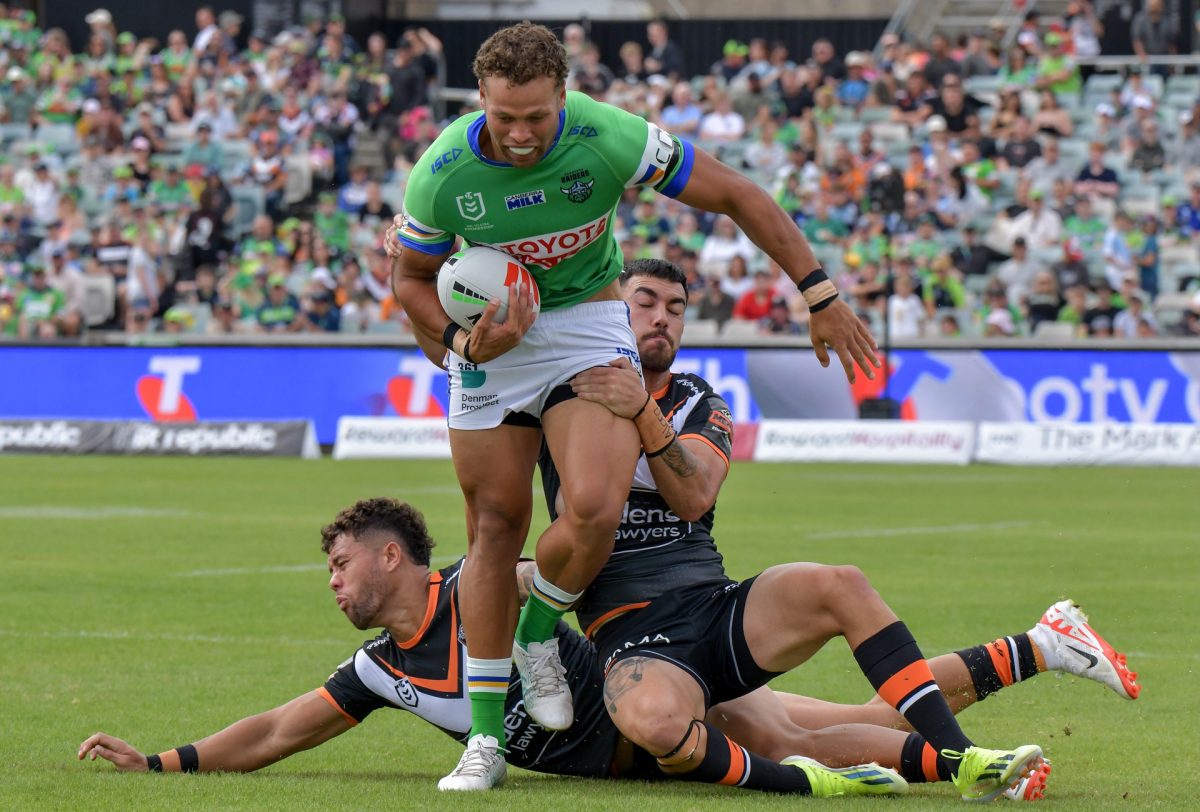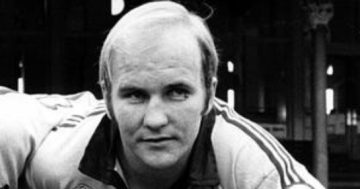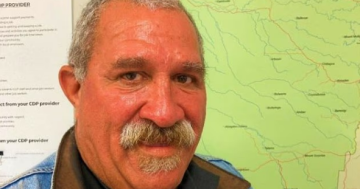
Rugby league administrators, once cautious about allowing a team in Canberra, are now keen to expand to Papua New Guinea. Photo: Jaye Grieshaber.
The National Rugby League (NRL) is behaving like politicians who think splurging is the best way to get out of debt.
Against all logic, they’re pushing ahead with plans to expand to a 20-team competition, even though we barely have enough talent and supporters to sustain the 17 teams currently in play.
To improve the quality of the product and grow the fan base, we need to reduce the number of teams rather than add more.
What reasons could a sporting code have for wanting to bring new franchises into their brand?
It could be that matches are always sold out, and fans are missing out on tickets. Or super skilful players are left on the bench because there’s no room in first-grade starting line-ups. Perhaps flamboyant teams are missing out on the semi-finals, given the competition for places is so intense.
None of this is happening in the NRL.
Even the grand final – the biggest match of the year – wasn’t sold out.
The average crowd for a rugby league match in 2024 at its flagship venue, Olympic Stadium, was 24,000, just a quarter of its total capacity. In April, one game between top-flight teams – the Roosters and the Bulldogs – attracted just 7000 fans, creating a dismal atmosphere in such a spacious venue.
It’s possible fans aren’t turning out in numbers as the competition is so predictable. Pundits could see a Penrith v Melbourne grand final coming as early as May.
Seven of the last 14 matches of the regular season were won by 20 points or more.
We used to have to wait until cricket season to see half-centuries, but in the final round, both the Storm (50) and Parramatta (60) reached that milestone. The five teams who occupied the bottom spots on the ladder never really threatened to make their mark all season.
All this points to the fact that talent is sparse and spread too thinly. Adding more teams will simply dilute this further and push down average crowds, which already lag so far behind the rival AFL.
But the NRL now seems to live by the philosophy that more is always better. That’s why it expanded the final series qualification from five teams to eight teams in the 1990s.
This has diminished the quality of what should be the peak of the season. No team that finished between fourth and eighth has won the premiership in the 27-year history of the NRL. In 2024, none of the bottom half teams even made it to the preliminary final, as the favoured team won pretty much every contest.
The NRL has argued we can improve competitiveness by expanding the game to new audiences. That’s why it’s considering a franchise in Perth.
But it’s a zero-sum game – whenever an additional team comes in, an existing one must be culled to ensure the quality of matches doesn’t fall.
Rugby league administrators were once cautious about expansion. When the Canberra Raiders were introduced to the then NSWRL in 1982, there was concern about whether players would be prepared to go and live in a cold city away from the coast.
We proved the doubters wrong, but the optimism about attracting talent to Papua New Guinea shows we’ve gone too far in the other direction (not to mention the value of spending $600 million taxpayer dollars to support this venture).
It’s time to put the kibosh on this grand vision, to live within our means and focus on improving what we have now.
Original Article published by Oliver Jacques on Riotact.













